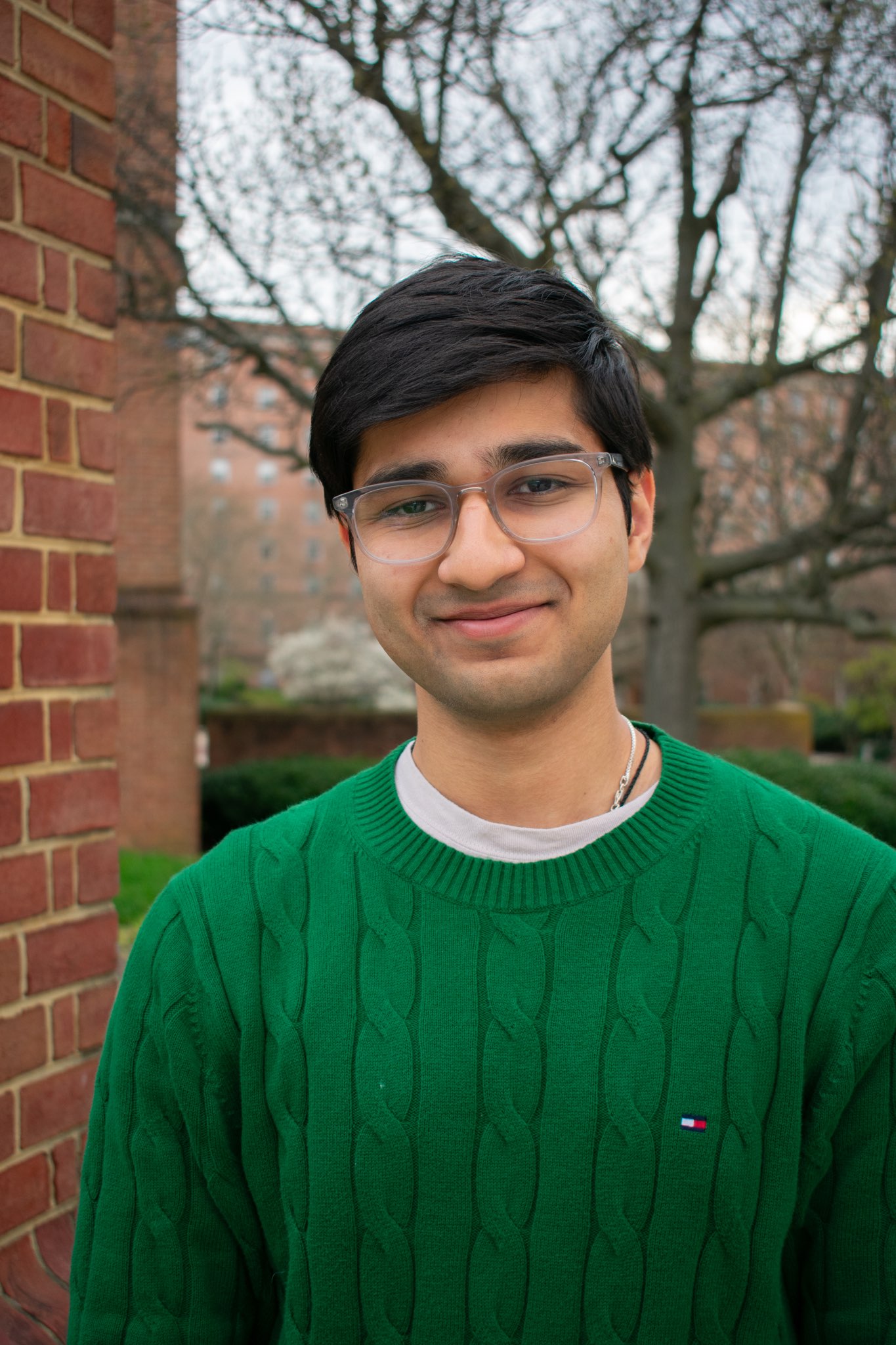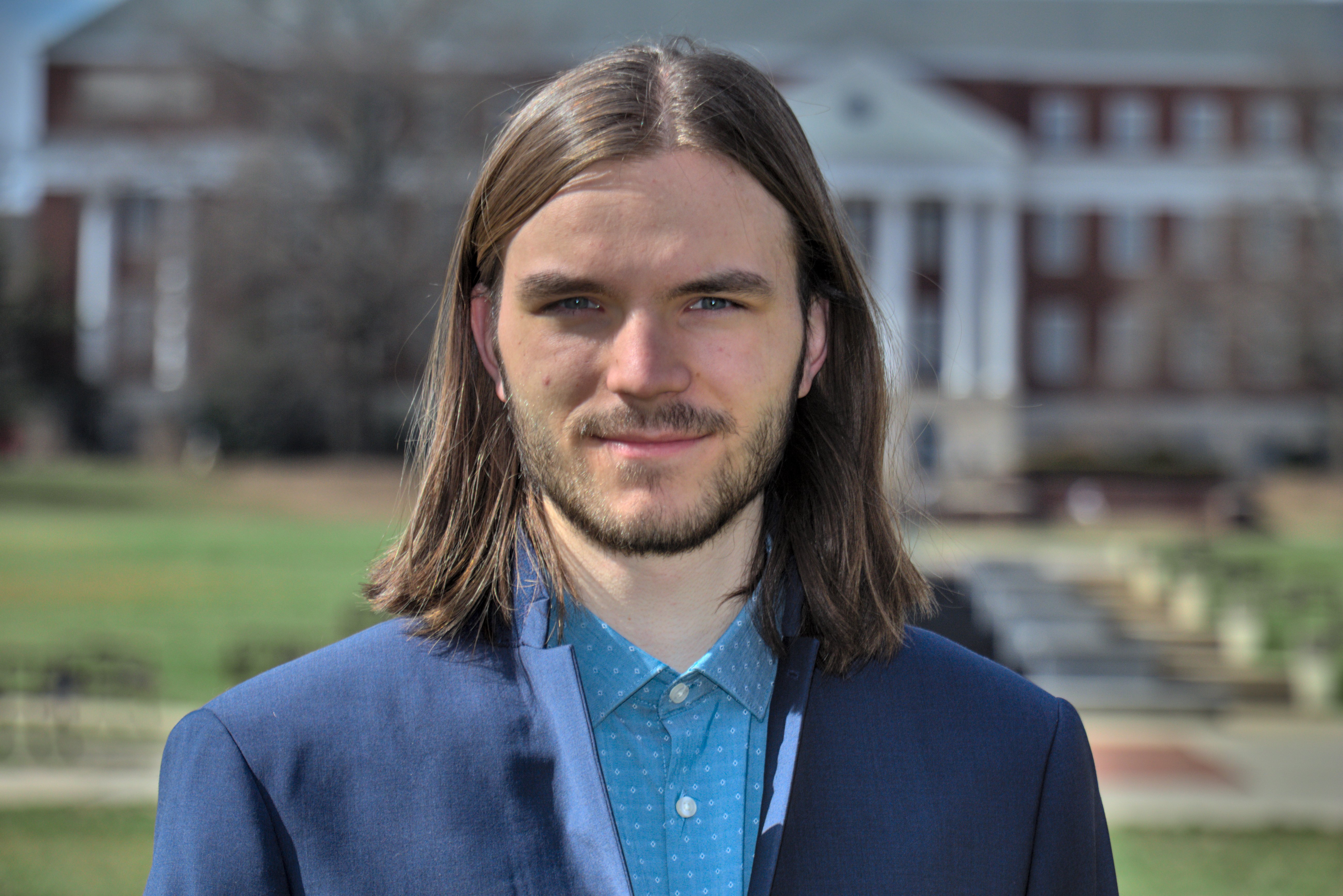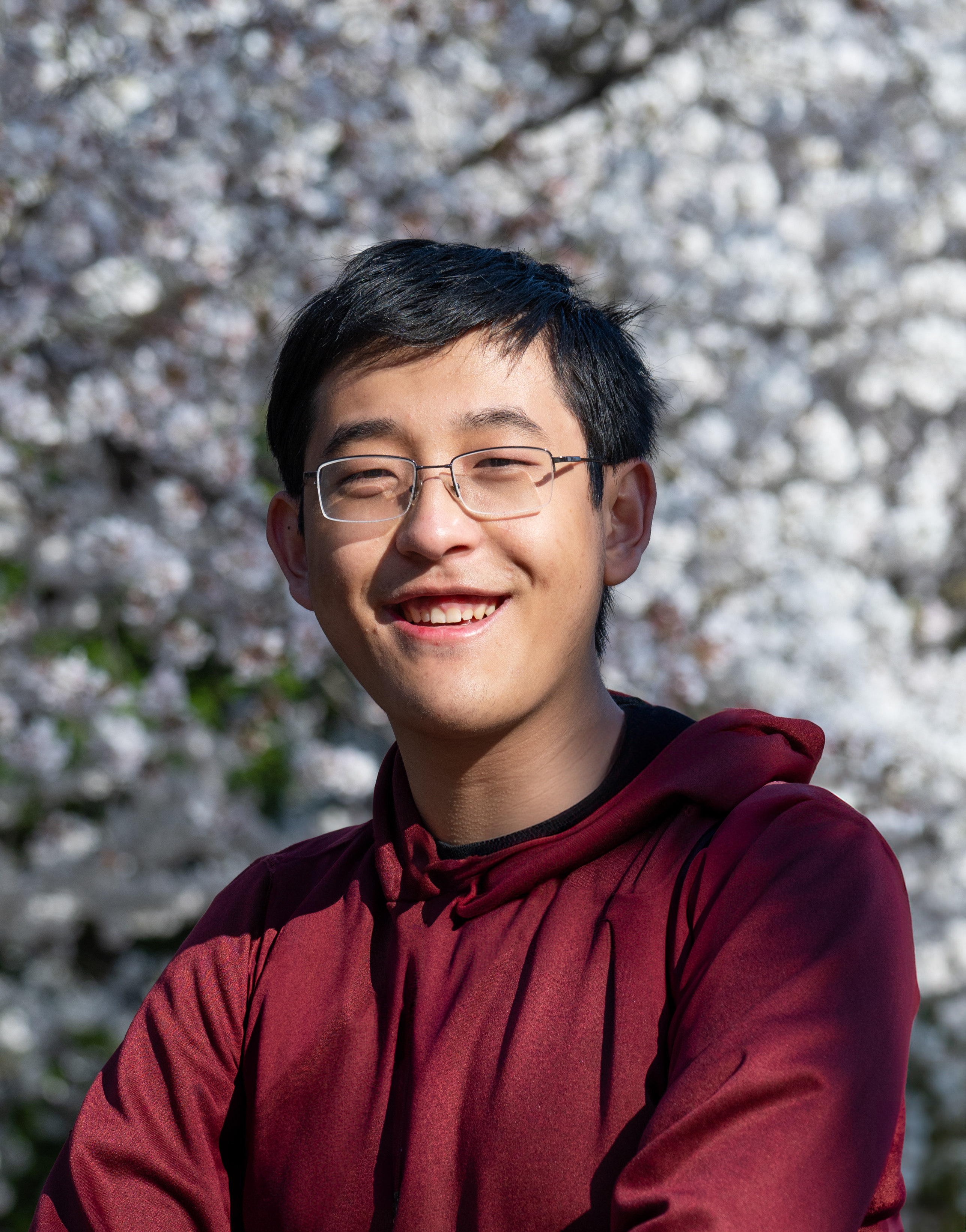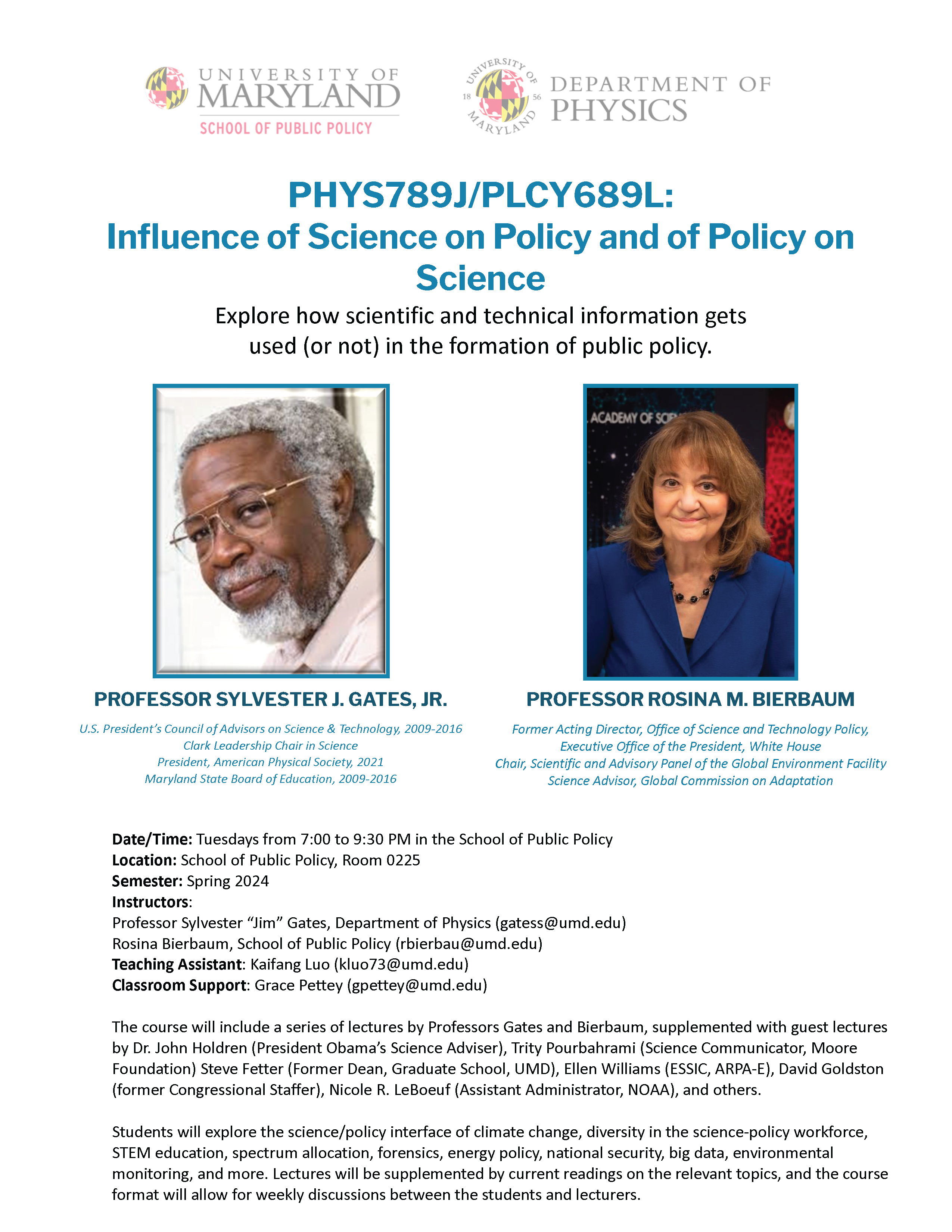Three undergraduates in the University of Maryland’s College of Computer, Mathematical, and Natural Sciences (CMNS) have been awarded 2024 scholarships by the Barry Goldwater Scholarship and Excellence in Education Foundation, which encourages students to pursue advanced study and research careers in the sciences, engineering and mathematics. Over the last 15 years, UMD’s nominations yielded 49 scholarships—second in the nation only to Stanford.
Junior physics and mathematics double-degree student Yash Anand, sophomore atmospheric and oceanic science (AOSC) and physics double-degree student Malcolm Maas, and junior biological sciences and mathematics double-degree student Jerry Shen, who works with physics Prof. Wolfgang Losert, are among 438 Goldwater Scholars selected from 1,353 nominees nationally. Goldwater Scholars receive one- or two-year scholarships that cover the cost of tuition, fees, books, and room and board up to $7,500 per year.
“The Goldwater Scholarships awarded to Yash Anand, Malcolm Maas and Jerry Shen are a result of their years of diligent effort, commitment, and seizing the research and extracurricular opportunities available at Maryland,” CMNS Dean Amitabh Varshney said. “These experiences have distinguished them among the nation's top STEM candidates.”
The Goldwater Foundation has honored 82 UMD winners and five honorable mentions since the program’s first award was given in 1989.
“Our 2024 Goldwater winners are reflective of the tremendous young research talent that is incubating at UMD,” said CMNS Associate Dean of Undergraduate Education Robert Infantino, who has led UMD’s Goldwater Scholarship nominating process since 2001. “They continue a legacy of winners that have gone on to leading graduate programs and are pursuing careers that greatly impact science and society.”
Yash Anand
Anand, a student in the Gemstone program in the Honors College, has been investigating quantum materials in UMD Physics Professor Johnpierre Paglione’s lab since 2021. Yash Anand. Photo courtesy of same.
Yash Anand. Photo courtesy of same.
He has grown, characterized and fine-tuned several new quantum materials that have unusual magnetic and physical properties. As part of this work, he spent time at TRIUMF, Canada’s particle accelerator facility. To fill in the long periods it takes to grow these materials, Anand took on another project studying the properties of sperrylite, the natural source of platinum. His work in Paglione’s lab resulted in two co-authored papers submitted for publication and a presentation at the 2024 American Physical Society March Meeting.
“Yash’s efforts in quantum materials synthesis and characterization have helped us advance several extremely promising avenues, including a new project on high-entropy alloys that is forging a path to a new research avenue for our team that will likely form the basis for future grant proposals,” said Paglione, who also directs the Maryland Quantum Materials Center. “His contributions have shown strong potential and have supported several facets of our research program, and I am excited to see where this work takes him next.”
Anand joined UMD Physics Associate Professor Zohreh Davoudi’s group in April 2023 to study the speed limit at which information propagates in a quantum system. More recently, he joined UMD Physics Professor Jay Sau’s group to analyze a proposed theory on non-linear quantum mechanics using phonons in crystal lattices.
A Regeneron Science Talent Search Scholar, Anand received the Angelo Bardasis Scholarship from the Department of Physics. He serves as treasurer of UMD’s Society of Physics Students chapter.
After graduation, Anand plans to pursue a Ph.D. in condensed matter physics.
“I am particularly interested in magnetic structures, such as skyrmionic bubbles, due to their potential to introduce innovative approaches for data storage and transfer, thereby advancing current electronic systems,” he said. “I also want to study the evolving field of superconductivity and the use of superconductors to reduce energy dissipation and cost of medical equipment.”
Malcolm Maas
 Malcolm Maas. Photo courtesy of same.In high school, Maas helped build the first global tornado climatology database. He gathered and processed historical data for over 100,000 tornadoes that occurred around the world. The project’s website raked in 160,000 page views during its first year.
Malcolm Maas. Photo courtesy of same.In high school, Maas helped build the first global tornado climatology database. He gathered and processed historical data for over 100,000 tornadoes that occurred around the world. The project’s website raked in 160,000 page views during its first year.
When Maas arrived at UMD, he joined a group of AOSC students installing and managing a micronet—a small-scale network of weather sensors—across the university’s campus. Five weather stations now provide minute-by-minute updates on the temperature, wind speed, pressure, dew point and rain rate on campus. Maas helped create the data collection system and user-friendly graphs to visualize the data, which are displayed on the UMD Weather website.
When the university and the Maryland Department of Emergency Management installed their first weather tower as part of the Maryland Mesonet in October 2023, they asked Maas to quickly adapt his micronet visualization tools to work with the mesonet data. The eight towers operational now around the state—with more than 70 planned in total—help to advance localized weather prediction and ensure the safety of Maryland's residents and visitors.
Since December 2022, Maas has been working with AOSC Assistant Professor Jonathan Poterjoy on fundamental challenges associated with environmental prediction and validation of atmospheric modeling systems. Specifically, he is quantifying the degree to which commonly used data assimilation methods shift models away from physically plausible solutions due to commonly adopted but incorrect assumptions.
“I have been very impressed with Malcolm’s level of understanding of the abstract concepts we are working with and his ability to take the lead on a project,” Poterjoy said. “Malcolm always comes to me with excellent questions and directions for our research and he has demonstrated an impressive depth of knowledge for such a young scientist.”
Last summer, Maas participated in the undergraduate summer intern program at the Lamont-Doherty Earth Observatory and worked on a project with Kostas Tsigaridis, a research scientist at Columbia University and the NASA Goddard Institute for Space Studies. Maas used an extremely large dataset of Earth system model simulations to explore the effects of volcanoes on climate and atmospheric sulfur. Using machine learning, he developed a tool to estimate where unidentified historical eruptions happened based on ice core data. He has two papers in preparation on this work, which has been presented at three conferences.
For his Gemstone honors research project, Maas and 11 teammates have been working with UMD Mechanical Engineering Professor Johan Larsson to optimize the shape of marine propellers.
Outside of class, Maas plays the pipe organ, advocates for infrastructure with the Student Government Association, serves as webmaster for UMD Weather and is a member of the Ballooning Club. He received a National Merit Scholarship, a President’s Scholarship and the Angelo Bardasis Scholarship from the Department of Physics.
After graduation, Maas plans to pursue a Ph.D. in atmospheric science.
“I’m excited about applying advanced data science methods to problems in the physics of the atmosphere,” he said. “Modern atmospheric sensing and simulation capabilities continue to increase in fidelity and the power of implementing sophisticated big-data processing techniques grows accordingly.”
Jerry Shen
Shen began his research career in high school with John Strang, director of the Gender and Autism Program at Children’s National Hospital. He developed a psychometric measure to quantify gender identity that is available in the public domain for use by clinical providers and researchers. Shen co-authored a paper on the work in The American Psychologist.
Since 2021, he has been working in Maureen Goodenow’s lab at the National Institutes of Health (NIH) using bioinformatics to identify genetic and immunogenic factors that contribute to HIV viral suppression. Shen submitted for publication a co-authored paper on this work, which was presented at the 2024 Congress on Retroviruses and Opportunistic Infections, one of the premiere international HIV conferences. He is also preparing a paper on his work exploring how THC and tobacco use can modulate gene expression in people with HIV.
“Jerry is thriving as a developing researcher in a real-world environment,” said Goodenow, chief of the Molecular Host and HIV Interactions Section in the NIH’s National Institute of Allergy and Infectious Diseases. “He is intellectually curious and highly motivated to understand all aspects of the projects and to integrate across-disciplines approaches.”
Since 2022, Shen has been working with UMD Physics Professor Wolfgang Losert and UMD Chemistry and Biochemistry Professor John Fourkas to explore the role of surface characteristics in modulating the assembly of actin filaments, which are proteins that keep cells connected. Using advanced computer vision techniques, Shen showed that cells can mechanically sense their environment through subcellular actin dynamics localized to the surface of nanotextured ridges. This work, which he presented at the 2024 American Physical Society March Meeting, is motivated by a desire to better understand cancer cell dynamics—a crucial element for developing new therapeutic strategies. Jerry Shen. Photo courtesy of same.
Jerry Shen. Photo courtesy of same.
Shen was named a Regeneron Science Talent Search Scholar and received a Banneker/Key Scholarship and M3 Math Modeling Challenge Silver Technical Prize. At UMD, he volunteers as an EMT and hospital patient care advocate. He is also the founder and president of UMD’s American Physician Scientist Association, treasurer of the UMD Science Olympiad and a member of a group called Science Competitions Advocating for Learning Equity.
After graduation, Shen plans to pursue an M.D./Ph.D. in molecular medicine with a focus on cancer therapeutics.
“Designing cancer therapeutics requires careful consideration of biochemical, immunological and patient care-related factors,” Shen said. “My Ph.D. training will provide me with the skills to evaluate the efficacy of treatments and the M.D. will equip me with the skills to apply these treatments effectively in a clinical setting, taking into account factors such as treatment timing, patient responses and drug side effects.”
Original story: https://cmns.umd.edu/news-events/news/2024-goldwater-scholars



